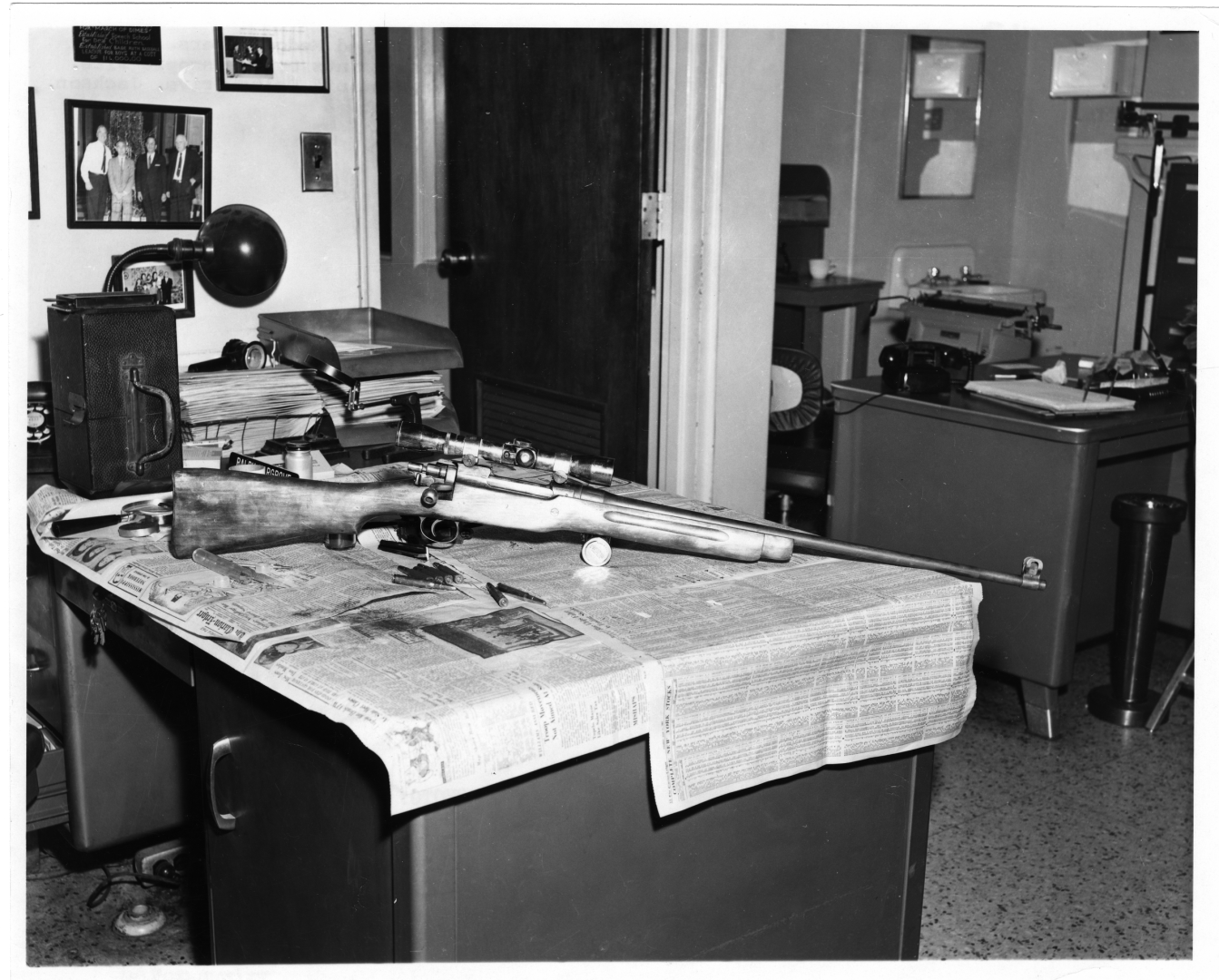
1920 - 2001
Byron De La Beckwith Jr.
Summary
Name:
Years Active:
1963Birth:
November 09, 1920Status:
DeceasedClass:
MurdererVictims:
1Method:
ShootingDeath:
January 21, 2001Nationality:
USA
1920 - 2001
Byron De La Beckwith Jr.
Summary: Murderer
Name:
Byron De La Beckwith Jr.Status:
DeceasedVictims:
1Method:
ShootingNationality:
USABirth:
November 09, 1920Death:
January 21, 2001Years Active:
1963Date Convicted:
August 1, 1975bio
Byron De La Beckwith was born on November 9, 1920, in Sacramento, California. He was the only child of Byron De La Beckwith Sr., who worked as a postmaster in Colusa, and Susan Southworth Yerger. When De La Beckwith was five years old, his father died from pneumonia. A year later, he and his mother moved to Greenwood, Mississippi, to be closer to her family. Unfortunately, when he was twelve, his mother also passed away from lung cancer, leaving him an orphan. Following her death, he was taken in by his maternal uncle, William Greene Yerger, and his wife. They provided support for his education, including enrolling him for one year at The Webb School.
In January 1942, just after the United States entered World War II, De La Beckwith enlisted in the U.S. Marine Corps. He served as a machine gunner in the Pacific theater. He fought in the Battle of Guadalcanal and was injured in the waist during the Battle of Tarawa. He was honorably discharged in August 1945.
After returning to the United States, De La Beckwith moved to Providence, Rhode Island. There, he married Mary Louise Williams. The couple later moved to Greenwood, Mississippi, and had a son named Delay De La Beckwith. They eventually divorced. De La Beckwith later married again, this time to Thelma Lindsay Neff.
Throughout his life, he worked as a salesman, selling a variety of goods like tobacco, fertilizer, and wood stoves. In 1954, after the U.S. Supreme Court ruled that segregated schools were unconstitutional, De La Beckwith joined the local White Citizens' Council. This group opposed school desegregation and attempted to intimidate African Americans involved in civil rights efforts. He also became a member of the Ku Klux Klan, a white supremacist organization.
murder story
On June 12, 1963, Byron De La Beckwith Jr. shot civil rights leader Medgar Evers in Jackson, Mississippi. Evers was returning home after a long day of work. De La Beckwith had waited across the street with a rifle. He shot Evers in the back as he got out of his car. Evers died an hour later. At that moment, Evers's wife and three children were at home. Their son Darrell remembered hearing the shot and knowing something terrible had happened.

De La Beckwith was arrested and put on trial for the murder of Evers in 1964. However, both trials ended with hung juries, meaning the jurors could not agree on a verdict. This outcome was influenced by the political climate in Mississippi at the time, particularly the lack of diversity in juries. In both trials, the all-white juries could not reach a decision, and De La Beckwith was released. He gained support from groups like the White Citizens' Council, which covered his legal fees.
In the years that followed, De La Beckwith became more involved with white supremacist organizations. By 1966, he was called to testify about Klan activities but did not answer many questions. He continued to make public statements about his views on race and civil rights. In 1973, he was arrested for plotting to kill a B’nai B’rith official, which led to his conviction for conspiracy to commit murder in Louisiana. He served time in prison before being paroled in 1980.
New evidence related to the Evers case came to light during the 1980s. A newspaper investigation revealed that local government resources had been misused during De La Beckwith's earlier trials. This led to a renewed push for prosecution, driven in part by Evers's widow, Myrlie Evers. In 1994, a new trial was held, more than thirty years after the initial murder.
De La Beckwith was extradited to Mississippi for this trial. The prosecution presented significant evidence, including the murder weapon with De La Beckwith's fingerprints. He claimed the rifle was stolen from his home. On February 5, 1994, he was found guilty of murder and sentenced to life in prison. He appealed the ruling, but the Mississippi Supreme Court upheld the conviction.
Byron De La Beckwith died on January 21, 2001, while in prison. He was 80 years old and had suffered from various health issues for some time.